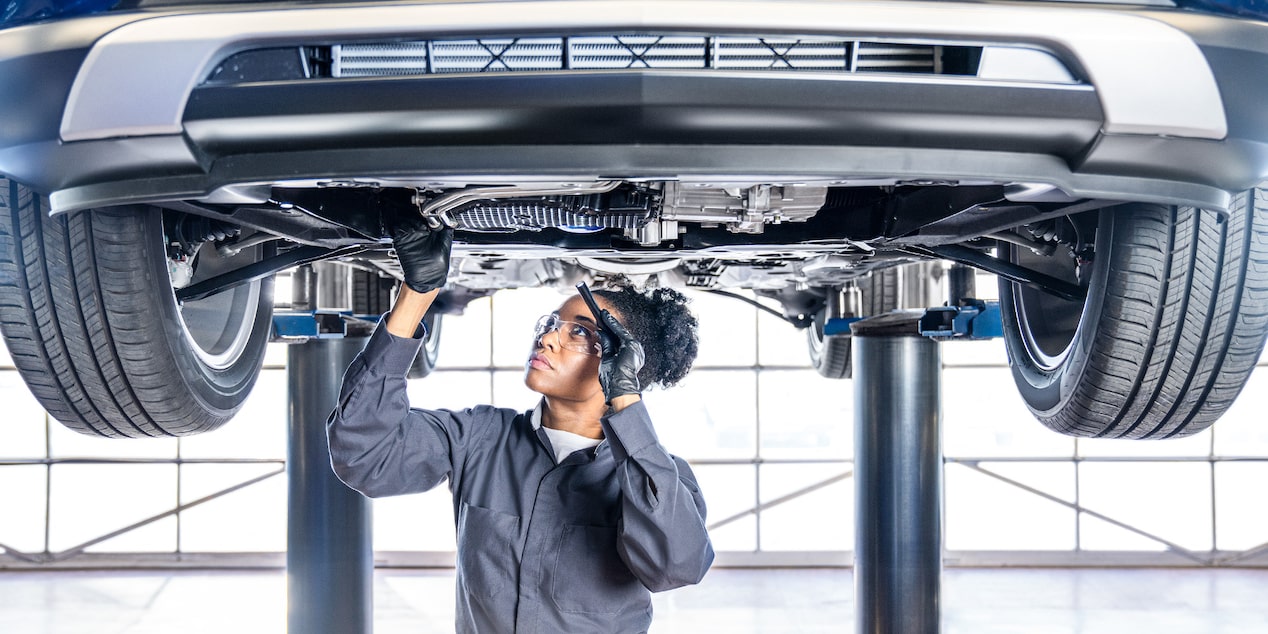Comprehensive Guide to Car Repairs: Everything You Need to Know

Car repairs are an essential part of vehicle ownership, ensuring your car remains safe, reliable, and efficient on the road. From routine maintenance to complex engine fixes, understanding the world of car repair services can save you time, money, and stress. In this comprehensive guide, we’ll explore key aspects of car repairs, including finding a reliable auto mechanic near you, understanding engine repair costs, addressing brake and suspension issues, and tips for affordable car maintenance.
The Importance of Car Repair Services
Car repair services encompass a wide range of tasks, from oil changes to major engine overhauls. Regular maintenance and timely repairs are crucial to extending your vehicle’s lifespan and preventing costly breakdowns. Whether it’s a minor issue like a worn-out windshield wiper or a major problem like a failing transmission, professional car repair services ensure your vehicle operates at its best.

A trusted auto mechanic can diagnose issues accurately, recommend necessary repairs, and provide expert solutions tailored to your vehicle’s needs. Routine services, such as tire rotations, fluid checks, and filter replacements, fall under preventive maintenance, while more specialized tasks like brake and suspension repair or engine diagnostics address specific problems that affect performance and safety.
When choosing car repair services, prioritize shops with certified technicians, transparent pricing, and good customer reviews. Many repair shops also offer warranties on parts and labor, giving you peace of mind that the work is guaranteed.
Finding an Auto Mechanic Near You
Locating a reliable auto mechanic near you is a critical step in maintaining your vehicle. A quick search for “auto mechanic near me” will yield numerous options, but not all mechanics are created equal. Here are some tips to find a trustworthy professional:
-
Check Certifications: Look for mechanics certified by organizations like the National Institute for Automotive Service Excellence (ASE). Certification indicates that the technician has the skills and knowledge to handle various repairs.
-
Read Reviews: Online platforms like Google, Yelp, or local community forums provide customer feedback on repair shops. Look for consistent positive reviews and pay attention to how shops respond to negative feedback.
-
Ask for Recommendations: Friends, family, or coworkers can recommend mechanics they trust. Personal referrals often lead to reliable service providers.
-
Compare Quotes: Contact multiple repair shops to get estimates for the same repair. This helps you gauge fair pricing and avoid overcharges.
-
Visit the Shop: A clean, organized repair shop with modern equipment is a good sign of professionalism. Don’t hesitate to ask about their experience with your car’s make and model.
By choosing a reputable auto mechanic near you, you can build a long-term relationship with a service provider who understands your vehicle’s history and needs.
Understanding Engine Repair Costs
Engine repairs are often the most intimidating and expensive type of car repair. Engine repair costs can vary widely depending on the issue, the vehicle’s make and model, and labor rates in your area. Common engine problems include overheating, misfiring, oil leaks, and worn-out components like spark plugs or timing belts.
Factors Affecting Engine Repair Costs
-
Type of Repair: Minor fixes, such as replacing spark plugs or a thermostat, may cost $100–$300. Major repairs, like rebuilding an engine or replacing a head gasket, can range from $1,000 to $5,000 or more.
-
Vehicle Make and Model: Luxury or high-performance vehicles often require specialized parts, which can significantly increase costs. For example, repairing a BMW engine is typically more expensive than fixing a Honda engine.
-
Labor Rates: Labor costs vary by region and shop. Urban areas tend to have higher rates, ranging from $80 to $150 per hour, while rural shops may charge less.
-
Parts Quality: Original Equipment Manufacturer (OEM) parts are more expensive than aftermarket parts but may offer better reliability and compatibility.
-
Diagnostic Fees: Many shops charge a diagnostic fee ($50–$150) to identify the issue before providing a repair estimate.
To manage engine repair costs, ask for a detailed breakdown of parts and labor before approving the work. If the repair is too expensive, consider getting a second opinion or exploring refurbished parts to reduce expenses. Regular maintenance, such as timely oil changes and monitoring engine performance, can prevent costly repairs in the first place.
Brake and Suspension Repair: Ensuring Safety and Comfort
Brake and suspension systems are critical to your vehicle’s safety and driving experience. Issues in these areas can lead to poor handling, longer stopping distances, or even accidents. Regular inspections and timely brake and suspension repairs are essential for safe driving.
Common Brake Issues
Brake problems often manifest as squealing noises, grinding sounds, or a spongy brake pedal. Common repairs include:
-
Brake Pad Replacement: Brake pads wear out over time and typically need replacement every 30,000–70,000 miles, costing $100–$300 per axle.

-
Rotor Resurfacing or Replacement: Worn or warped rotors can cause vibrations when braking. Resurfacing costs $50–$100 per rotor, while replacement is more expensive.
-
Brake Fluid Flush: Old or contaminated brake fluid can reduce braking efficiency. A flush costs $80–$150 and is recommended every 2–3 years.
Suspension Problems
The suspension system absorbs road shocks and ensures smooth handling. Signs of suspension issues include uneven tire wear, bouncing, or pulling to one side. Common repairs include:
-
Shock or Strut Replacement: Worn shocks or struts affect ride comfort and handling, costing $200–$600 per pair.
-
Control Arm or Bushing Replacement: These components stabilize the suspension and may cost $100–$400 to replace.
-
Alignment: Misaligned wheels cause uneven tire wear and poor handling. A wheel alignment costs $50–$150.
For brake and suspension repairs, prioritize quality parts and experienced technicians, as these systems directly impact your safety. Regular inspections during routine maintenance can catch issues early, saving you from costly repairs.
Tips for Affordable Car Maintenance
Maintaining your vehicle doesn’t have to break the bank. Affordable car maintenance involves proactive care, smart decision-making, and leveraging cost-saving opportunities. Here are practical tips to keep your car in top shape without overspending:
-
Follow the Maintenance Schedule: Your vehicle’s owner’s manual outlines recommended maintenance intervals for oil changes, tire rotations, and other services. Sticking to this schedule prevents major issues and costly repairs.
-
DIY Basic Maintenance: Simple tasks like replacing air filters, checking tire pressure, or topping off fluids can be done at home with minimal tools, saving you labor costs.
-
Shop Around for Parts: Compare prices for parts online or at local auto parts stores. Aftermarket parts are often cheaper than OEM parts and can be just as reliable for certain repairs.
-
Use Coupons and Discounts: Many repair shops offer promotions, especially for routine services like oil changes or tire rotations. Check their websites or ask about ongoing deals.
-
Invest in Preventive Care: Spending a little on regular maintenance, such as oil changes ($30–$80) or tire rotations ($20–$50), can prevent expensive repairs like engine failure or tire blowouts.
-
Learn to Spot Warning Signs: Pay attention to unusual noises, dashboard warning lights, or changes in performance. Addressing issues early can prevent them from escalating into major repairs.
By adopting these strategies, you can keep your car running smoothly while minimizing expenses. Affordable car maintenance is about balancing quality care with cost-conscious decisions.
Conclusion
Car repairs are an inevitable part of owning a vehicle, but with the right knowledge and approach, you can navigate the process with confidence. Whether you’re searching for reliable car repair services, looking for an auto mechanic near you, estimating engine repair costs, addressing brake and suspension issues, or seeking affordable car maintenance, understanding your options is key. By choosing reputable mechanics, staying proactive with maintenance, and making informed decisions, you can keep your vehicle in excellent condition without breaking the bank. Regular care and timely repairs not only ensure your safety but also enhance your car’s performance and longevity, making every drive a smooth and worry-free experience.
ADVERTISEMENT





